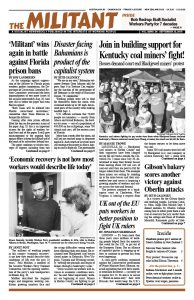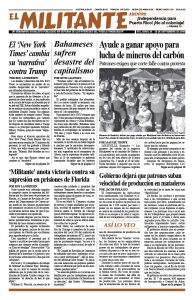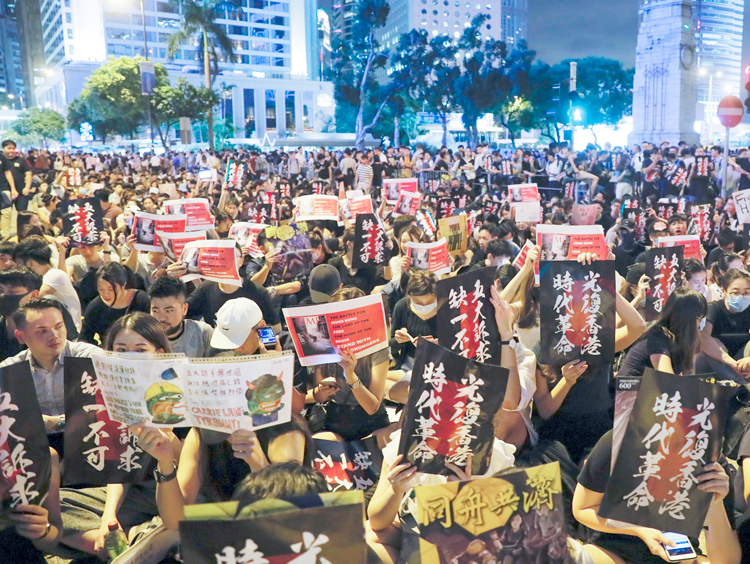Fourteen weeks of protests in Hong Kong, some drawing a million people or more, forced Hong Kong’s chief executive, Carrie Lam, to withdraw her hated bill Sept. 4 that would have legalized extradition to the Chinese mainland. The bill would have tightened the Chinese rulers’ grip on the semiautonomous city, a former British colony. The withdrawal of the bill did not prevent thousands from protesting against Lam and Beijing days later.
A statement Sept. 4 by the Civil Human Rights Front, which mobilized over a million people twice in June and again in August, said, “We will continue to struggle until the five core demands are wholly fulfilled.” Above, Aug 16 protest.
The other demands are: the extension of universal suffrage with direct election of the city administration instead of appointment by a body dominated by pro-Beijing forces; an independent investigation into cop brutality; amnesty for more than a thousand arrested protesters; and that the protests not be classified as “riots” by authorities.
Lam’s backdown, agreed to by Beijing, came after a tape was leaked of her lamenting that as chief executive she was the servant of “two masters by constitution” — Hong Kong and Beijing. This is under the “one country, two systems” arrangement agreed to when London returned the territory to Chinese sovereignty in 1997.


